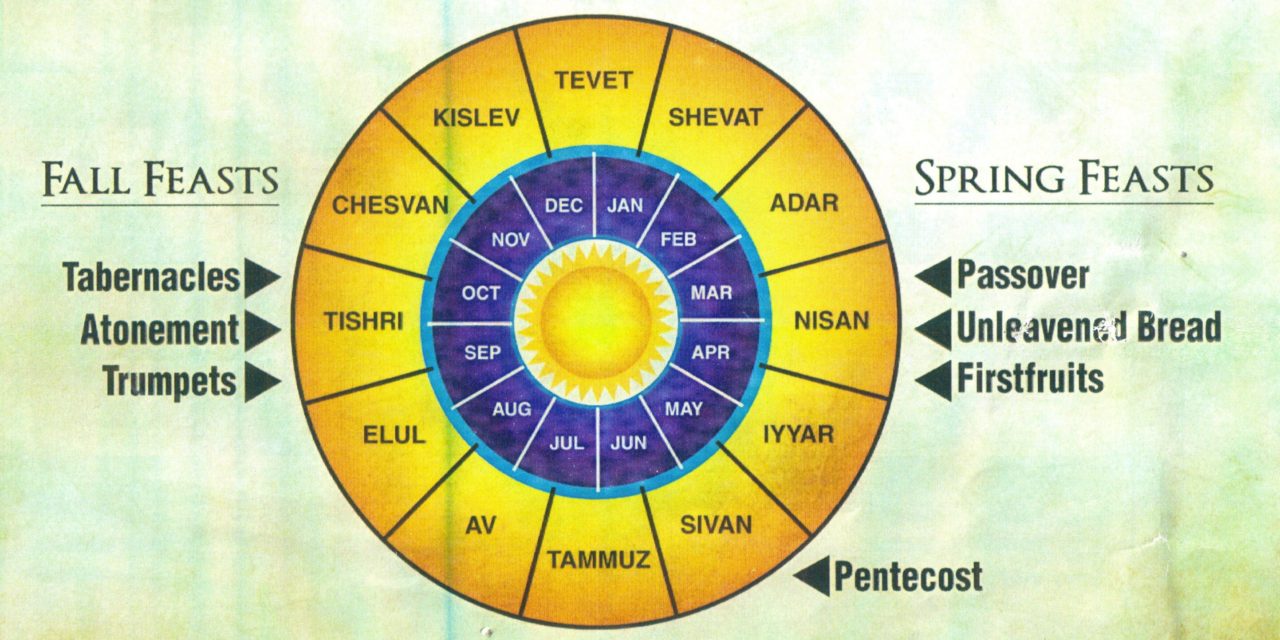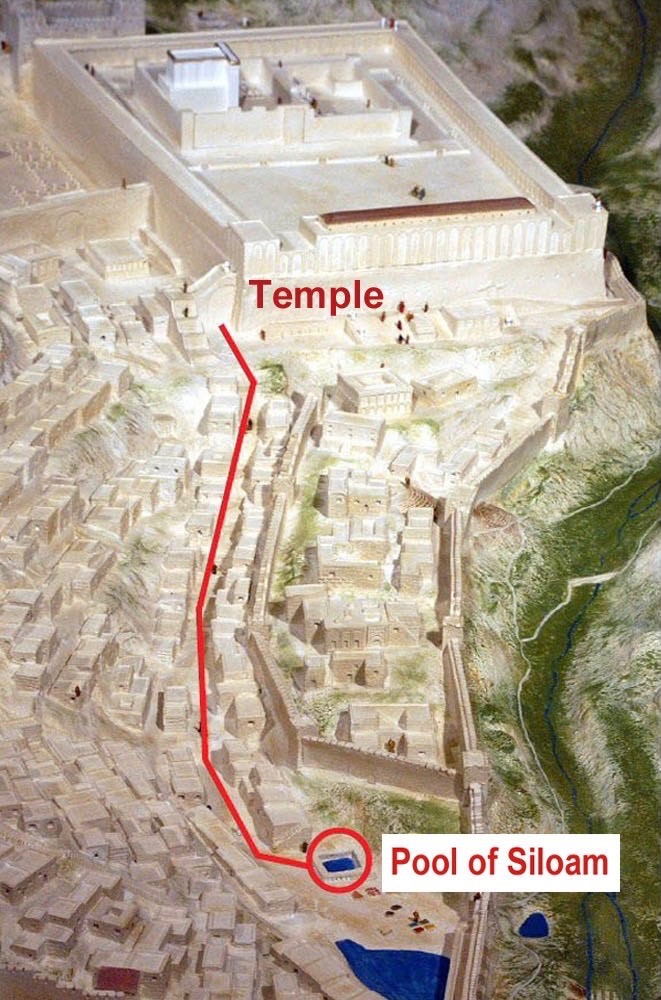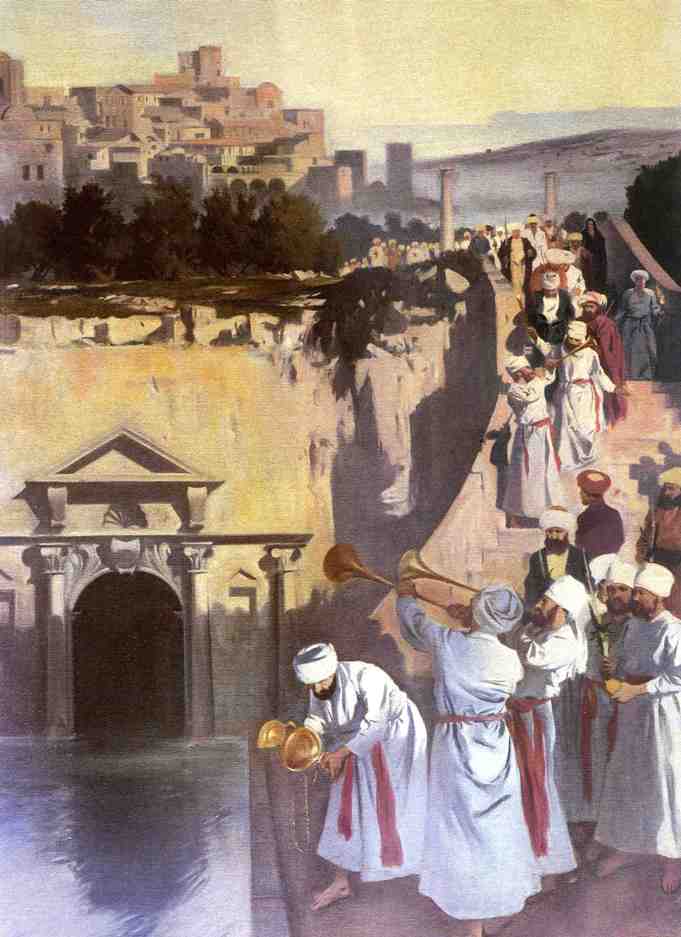Sometimes we forget that Jesus was a Jew — many called him “rabbi,” and he and his family observed the commandment to attend the holy feast days. While reading John chapter 7, I became interested in what happened when Jesus decided to go up to the Temple in Jerusalem for the Feast of Tabernacles. At first, he told his brothers that he was not going – at least not with them – since the Jewish leaders would be looking to kill him. And He said it was not His time for that yet (six months later, he would offer up His life). However, He did go up “secretly” in the middle of the week and attend the feast in the temple at Jerusalem. First, He taught in the temple. The leaders didn’t like that. Then, on the last day of the feast – “the great day” – Jesus stood up and declared that “if anyone thirsts, let that person come to me, and let the person who believes in me drink. As the scripture says, ‘Rivers of living water will flow out of his heart.'” (John 7: 37-38)
The “great day” was the 8th day of the feast (Leviticus 23:36), and Jesus was referring to the water libation ceremony. This was an oral tradition among the Jews, where a priest carried water in golden goblets from the pool of Siloam into the temple through the Water Gate and poured it on the altar. They would pray for rain for the coming season to ensure a good harvest. The pool of Siloam dates back to Hezekiah when his people built the tunnel bringing water from the Gihon Spring into the safety of the city of Jerusalem.
“He who has not seen the rejoicing at the place of the water-drawing has never seen rejoicing in his life. At the conclusion of the first festival day of Tabernacles they descended to the court of the women where they had made a great enactment. There were there golden candlesticks with four golden bowls on the top of each of them and four ladders to each, and four youths drawn from the priestly stock in whose hands were held jars of oil… there was not a courtyard in Jerusalem that was not illumined by the light of the place of the water-drawing. Men of piety and good deeds used to dance before them with lighted torches in their hands, and sing songs and praises. And Levites without number with harps, lyres, cymbals and trumpets and other musical instruments were there upon the fifteen steps leading down from the court of the Israelites to the court of the women, corresponding to the fifteen songs of ascents in the psalms…” (Babylonian Talmud, Tractate Sukkah 51a and 51b)(ref)
“Behold, God is my salvation; I will trust, and will not be afraid;
for the Lord God is my strength and my song, and he has become my salvation.”
With joy you will draw water from the wells of salvation.” (Isaiah 12:2-3)
See also: https://www.jewishroots.net/library/holiday-articles/water_libation_ceremony.html



